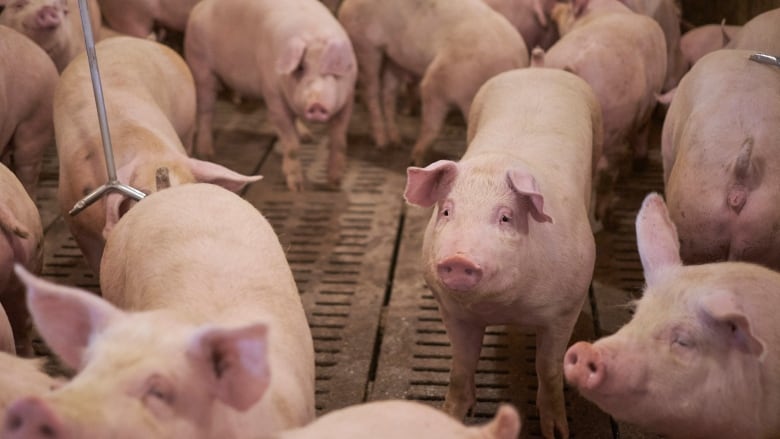Singapore agrees to zoning arrangement to allow for safe trade from Canada in the event of an African swine fever outbreak

The Honourable Marie-Claude Bibeau, Minister of Agriculture and Agri-Food announced that the Canadian Food Inspection Agency (CFIA) and the Singapore Food Agency have agreed to an African swine fever (ASF) zoning arrangement to allow for the safe trade of swine products from disease-free zones in Canada in the event of an ASF outbreak
ASF is a viral disease that does not infect humans, but poses a significant risk to the health of Canadian swine herds, pork industry and the Canadian economy.
Following their evaluation of CFIA’s zoning proposal, Singapore agreed to a regionalization arrangement with Canada. This means that restrictions on the import of Canadian pork and pork products into Singapore, valued at CAD $10 million per year, would only be limited to the areas within the Primary Control Zone(s), once established, if a case of ASF were to be found in Canada. This arrangement would serve to minimize trade impacts to the Canadian swine sector while protecting the swine populations in both countries.
“Reducing the risks presented by African Swine Fever is a top priority and that’s why we are taking unprecedented steps to reduce the risk ASF poses to our pig population.”
“Reducing the risks presented by African Swine Fever is a top priority for our Government and that’s why we are taking unprecedented steps to reduce the risk ASF poses to our pig population, our economy and the livelihoods of over one hundred thousand Canadians,” Bibeau stated. “We will continue to work with international partners to prevent the spread of African swine fever and mitigate its potential impact on Canada’s economy.”
Zoning is an internationally-recognized tool used to help manage diseases and facilitate international trade. If a case of ASF is identified, geographic boundaries are defined to contain the outbreak. The area within these geographic boundaries form the Primary Control Zone(s) established in accordance with the World Organisation for Animal Health (OIE) guidelines. The areas outside of these Primary Control Zone(s) are considered disease-free zones.
“Preparedness is of utmost importance in order to react quickly and to prevent the spread of an animal disease,” added Dr. Jaspinder Komal, Chief Veterinary Officer for Canada. “That’s why Canada is taking unprecedented steps in preventing and mitigating the potential impact of African swine fever (ASF) here at home, while collaborating with other countries as a leader in the global fight against ASF.”
Zoning arrangements have been established with the U.S., the EU and now Singapore, and they are being pursued with other trading partners. The arrangement with Singapore is another positive step in Canada’s prevention and preparedness efforts related to ASF. The Government of Canada is working collaboratively with other countries, industry and other stakeholders to best address the threats this disease poses. To support these efforts, the ASF Executive Management Board was formed to serve as a specialized taskforce, made up of senior industry and government representatives, to provide leadership and strategic direction relating to the risk management of ASF.











